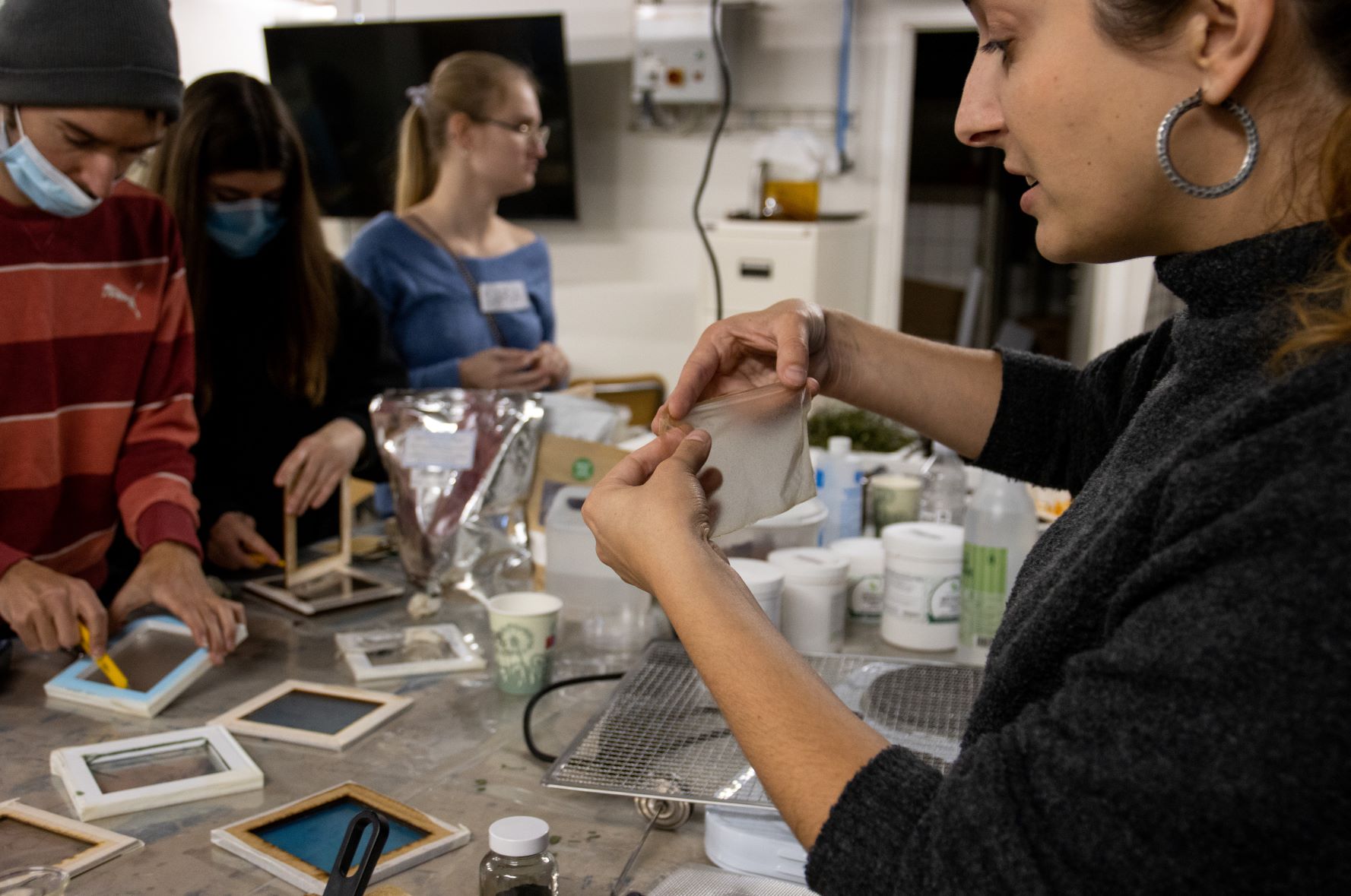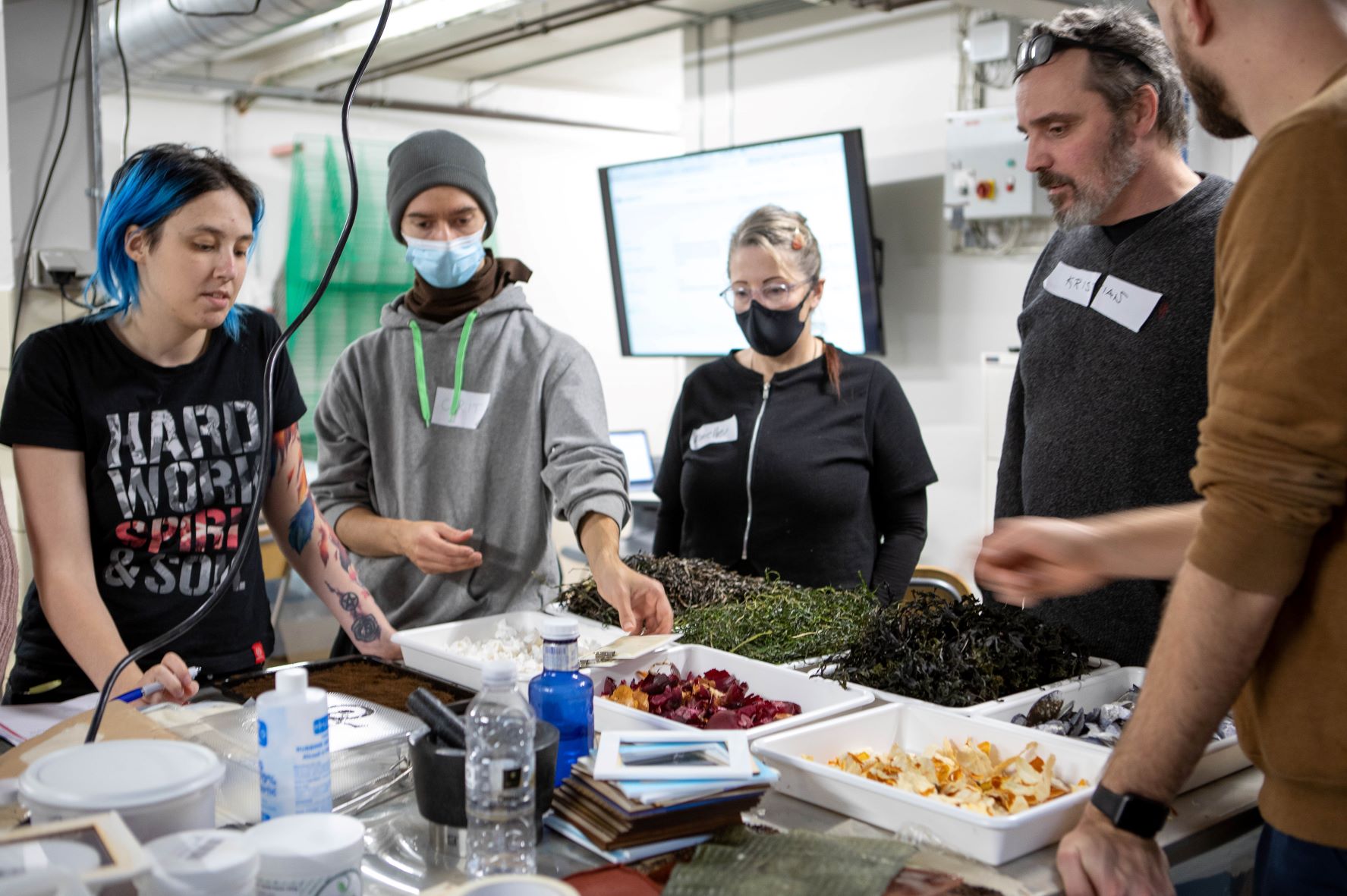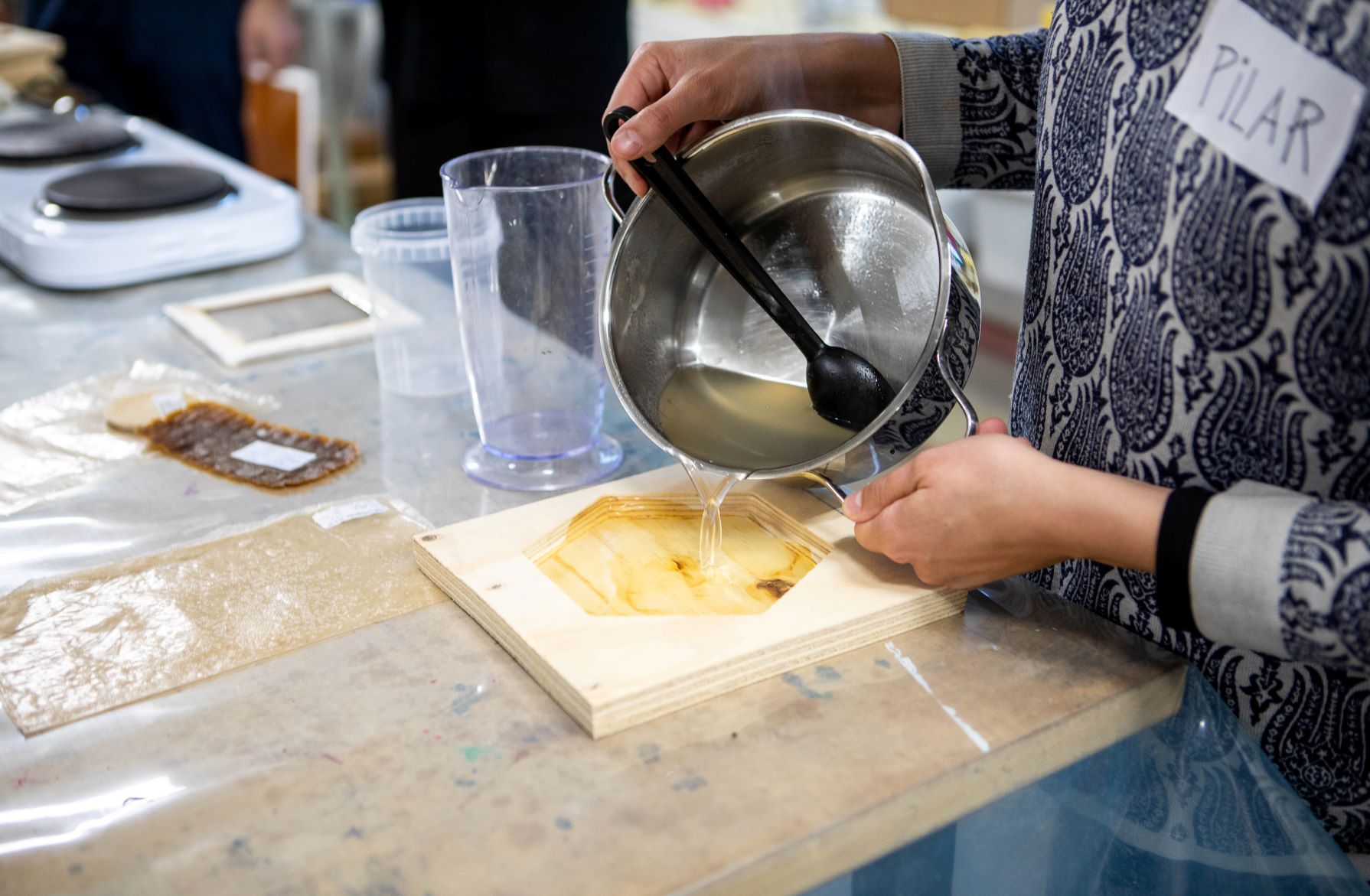Experience with biomaterials
Experimenting with innovative practices
The REFLOW project aims to explore and co-create new regenerative solutions to create a resilient circular economy. This requires that the work with plastic in Vejle, includes efforts that go across scales – from solutions at a logistic city level, citizen level and even more material-specific that includes a new understanding of materials and production methods.
Among the many innovative initiatives, the pilot city in Vejle has been working with new experimental and innovative ways to manufacture plastic as a part of their mission to change the plastic streams and create new circular streams.
In collaboration with the British organisation Materiom, the pilot organised a two-day workshop held in the local Fablab in Spinderihallerne. Spinderihallerne is a local innovation center and REFLOW Vejle’s innovative home and meeting place.
Throughout the workshop participants gained insight into what bio-based materials is, what can be made from it, how it is manufactured and how it can be an alternative to plastic products.The workshop was carried out with makers and start-ups to inform and inspire these actors on the potentials of bio-plastic materials. During the workshop, a dedicated session about business model recalibration was incorporated to help participants to imagine how biomaterials could be integrated into their current business models.

The next generation of materials
Bio-based plastic is a contrast to other conventionally manufactured plastics made from fossil fuels such as oil and natural gas. The principle behind biomaterials is to manufacture new plastic products by using what we already have by hand in our local nature.
Bio-based materials consists of resources that are a completely natural part of our environment and nature – perhaps even without us noticing it. But it is precisely these natural resources that carry great potential to become new usable materials. This means that new materials can be made from natural ingredients like for example seaweed or agricultural waste.
Materiom provides open data and recipes on how to make biomaterials. They help citizens, companies and communities creating materials selected and sourced from the local abundant biomass as a way to take part in a regenerative circular economy.
In that way Materiom’s work and mission relates to REFLOW Vejle’s ambition to think in new innovative ways around plastic – both when it is manufactured and consumed.

Experience from our workshop
Through the experiments and development, the workshop on biomaterials have resulted in new perspectives on production. Participants explored and experimented with different types of biomaterials. It turned into a wealth of beautiful products – made from, among other things, seaweed, eggshells and onion peels. The workshop’s way of working both theoretically and practically provided an in-depth insight into how we can transform biowaste from, for example, food production into bioplastics.
These moments of interaction with makers and start-ups provide space for increased awareness and knowledge on plastic alternatives and activate the exploration of experimenting with plastic alternatives. This is leading the way to new methods and tools for both reusing and replacing plastic in products. Therefore, the workshop has kick-started the establishment of Vejle’s own biolab. The biolab is aimed to involve both citizens and decision-makers. The biolab is located in Fablab in Spinderihallerne, where a group of three to five volunteers will run the laboratory in collaboration with the local Fablab. The volunteers involved have a background from the Design School in Kolding and from start-up artist communities.

Next steps in Fablab Spinderihallerne
Beside the fact that Fablab Spinderihallerne will open their own local biolab, they will also facilitate a theme month in May were the laboratory focuses specifically on biobased materials. The Fablab will also conduct workshops and open nights for makers and citizens where they will experiment with materials.
Materials that will be worked on:
- Spirulina: Spirulina is a blue-green algae that is found in both freshwater and saltwater
- Mycelium: Mycelium is an underground network of threads from which fungi grow
- Kombucha: Kombucha is known as a slightly effervescent sour sweet drink made from sugars, tea and a fungus that ferments the tea
In addition to the bio lab, Fab-lab Spinderihallerne also expects to experiment with recycling PLA from the 3D printers. PLA is not a fossil plastic type as it is based on corn starch.
A handbook on biomaterials
In collaboration with Materiom the Vejle pilot has developed a handbook with recipes for bio-based plastic, based on the materials that are easily accessible locally in Vejle and distribute this to all volunteers and makers in the biolab. The materials that Materiom has highlighted as available in Vejle are based on what dominates production companies in the local area.
Top 3 resources in Vejle:
- Collagen and Gelatin from poultry meat
- Cellulose and Hemicellulose from coffee and related products
- Calcium carbonate from eggs
The completed handbook will be presented at REFLOW Vejle’s final exhibition. Here you also get the opportunity to see the bio-plastics that was made during the workshop and in Reflow’s lifetime.
The developed material will be open-sourced and available to anyone. Therefore, you have the opportunity to experiment with developing bio-based materials at home in your own kitchen.
Follow the pilot’s work Facebook page, Linkedin site and website.